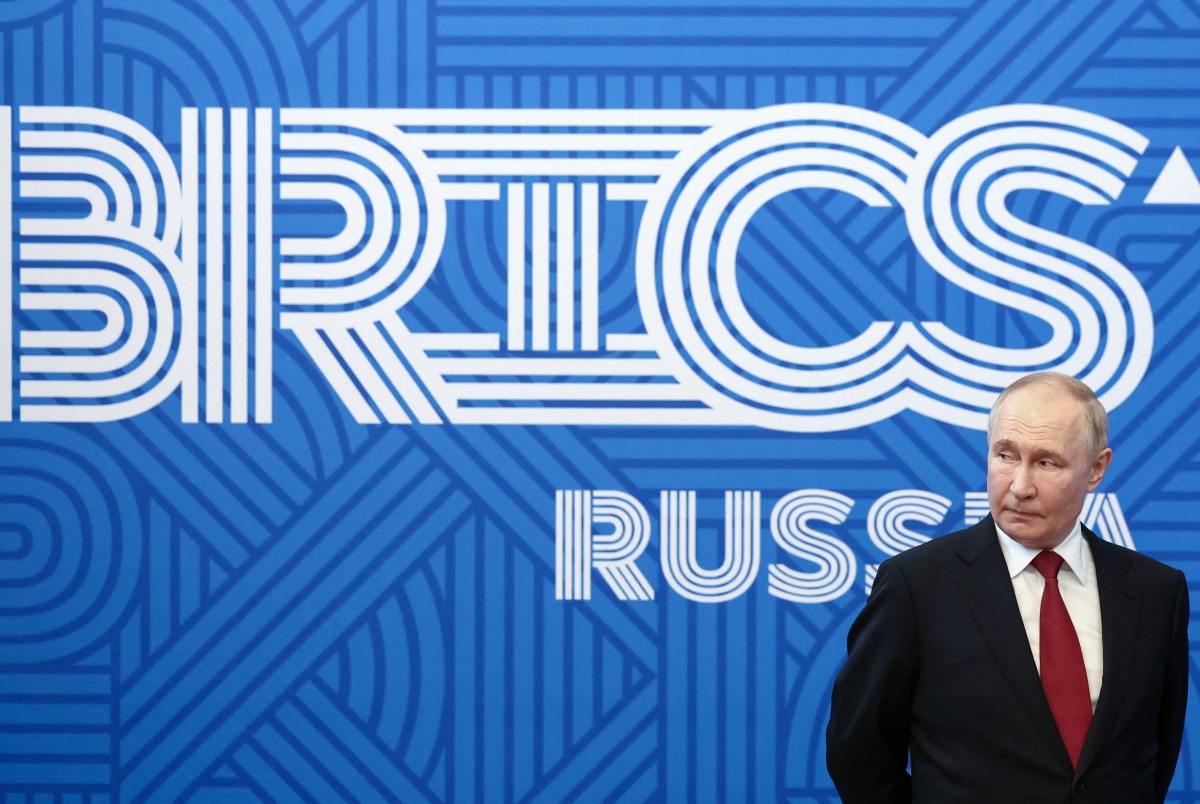
403
Sorry!!
Error! We're sorry, but the page you were looking for doesn't exist.
Russia unveils significant term for joining BRICS
(MENAFN) In a recent statement, Russian Deputy Foreign Minister Sergey Ryabkov detailed a crucial condition for countries aspiring to join the BRICS bloc, emphasizing that applicants must not participate in sanctions against any current members of the group. This announcement highlights the geopolitical considerations that shape membership in the BRICS alliance, which originally included Brazil, Russia, India, and China and has now expanded to nine member states.
As the group prepares for its upcoming summit in Kazan, Russia, later this month, Ryabkov underscored the importance of pursuing a sovereign foreign policy and fostering amicable relations with existing BRICS nations. He stressed that potential members should not engage in what Moscow considers illegitimate sanctions imposed by the United States and its allies, particularly in relation to the ongoing conflict in Ukraine.
During a press conference in Moscow, Ryabkov elaborated on the requirements for joining BRICS, stating, “One needs to pursue a sovereign policy, have a significant role in international and regional affairs, build good-neighborly and friendly relations with the BRICS countries, and not join in illegitimate sanctions against members of the association.” His remarks indicate that alignment with BRICS values is essential for any nation wishing to be part of this influential economic coalition.
Russia, as the current chair of BRICS, is keen to facilitate the integration of recently accepted members while ensuring that the dynamics and effectiveness of the group’s mechanisms are maintained. Among the countries currently seeking membership are Algeria, Bangladesh, Bahrain, Belarus, Bolivia, Cuba, Honduras, Indonesia, Kazakhstan, Kuwait, Morocco, Nigeria, Palestine, Senegal, Thailand, Venezuela, and Vietnam.
Ryabkov affirmed that “the doors to BRICS remain open,” but cautioned that the expansion of the group should not be seen as an end in itself. He stressed the need for enlargement to enhance the capabilities and international standing of BRICS, reminding attendees that all decisions within the association are made by consensus. This approach aims to foster an organic and cohesive partnership among member states, reinforcing BRICS's role as a significant player on the global stage.
As the summit approaches, the focus will be on how the bloc can navigate its expansion while addressing the complex political landscapes and alliances that define contemporary international relations.
As the group prepares for its upcoming summit in Kazan, Russia, later this month, Ryabkov underscored the importance of pursuing a sovereign foreign policy and fostering amicable relations with existing BRICS nations. He stressed that potential members should not engage in what Moscow considers illegitimate sanctions imposed by the United States and its allies, particularly in relation to the ongoing conflict in Ukraine.
During a press conference in Moscow, Ryabkov elaborated on the requirements for joining BRICS, stating, “One needs to pursue a sovereign policy, have a significant role in international and regional affairs, build good-neighborly and friendly relations with the BRICS countries, and not join in illegitimate sanctions against members of the association.” His remarks indicate that alignment with BRICS values is essential for any nation wishing to be part of this influential economic coalition.
Russia, as the current chair of BRICS, is keen to facilitate the integration of recently accepted members while ensuring that the dynamics and effectiveness of the group’s mechanisms are maintained. Among the countries currently seeking membership are Algeria, Bangladesh, Bahrain, Belarus, Bolivia, Cuba, Honduras, Indonesia, Kazakhstan, Kuwait, Morocco, Nigeria, Palestine, Senegal, Thailand, Venezuela, and Vietnam.
Ryabkov affirmed that “the doors to BRICS remain open,” but cautioned that the expansion of the group should not be seen as an end in itself. He stressed the need for enlargement to enhance the capabilities and international standing of BRICS, reminding attendees that all decisions within the association are made by consensus. This approach aims to foster an organic and cohesive partnership among member states, reinforcing BRICS's role as a significant player on the global stage.
As the summit approaches, the focus will be on how the bloc can navigate its expansion while addressing the complex political landscapes and alliances that define contemporary international relations.

Legal Disclaimer:
MENAFN provides the
information “as is” without warranty of any kind. We do not accept
any responsibility or liability for the accuracy, content, images,
videos, licenses, completeness, legality, or reliability of the information
contained in this article. If you have any complaints or copyright
issues related to this article, kindly contact the provider above.


















Comments
No comment